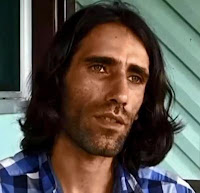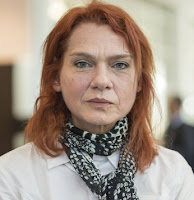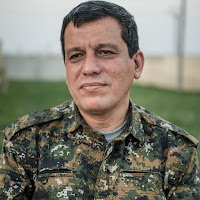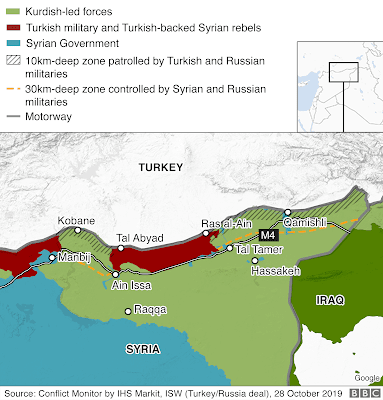Rojava: ‘the most progressive and democratic system in the history of the Middle East’
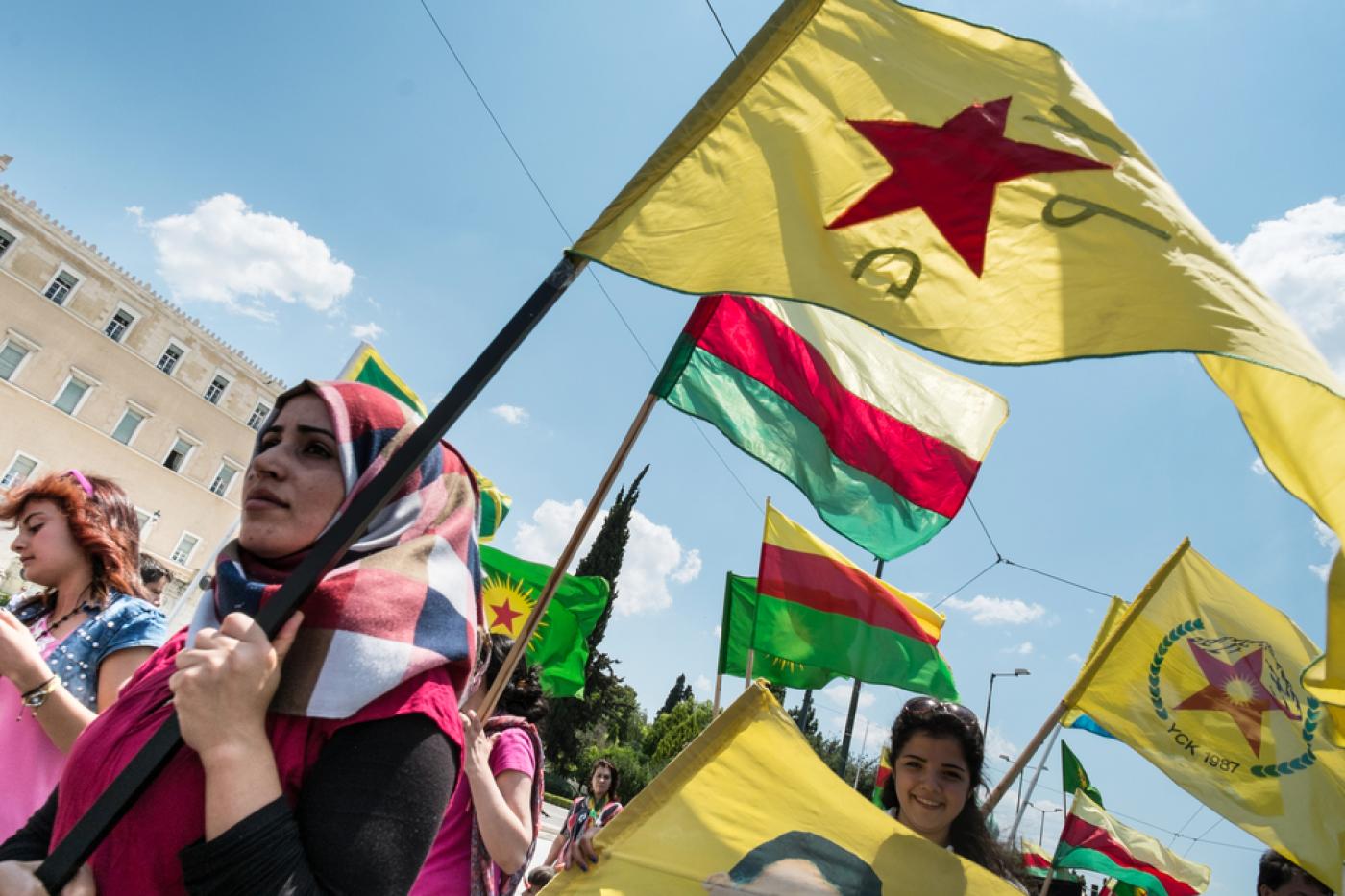
November 9, 2019 — Links International Journal of Socialist Renewal — In an interview with SBS, celebrated Iranian Kurdish refugee Behrouz Boochani, detained in Australian offshore detention camps for six years, said that: "[Rojava] is the most progressive and democratic system in the history of the Middle East [so] this attack is not only an attack on Kurds, it is an attack on democracy and democratic values." [1]
Rojava's democracy is based on communes and is profound. Its feminism, in a region saturated with patriarchal practices, is remarkable. Its formation of a 25,000 strong women's army is without precedent — anywhere, anytime. Its ethnic and religious pluralism, in a region where elites play on these differences to maintain their power, is also without precedent.
Slovenian Marxist philosopher Slavoj Zizek recently very accurately described Rojava as "an actually-existing and well-functioning utopia".[2]
1. Turkey's hatred of Kurds
Recently Turkish writer Asli Erdogan, jailed in 2016 for four months for criticising her presidential namesake and now in exile in Germany, gave an interview to the Italian newspaper La Repubblica.[3]
She said that "We Turks have been made to hate the Kurds since we go to primary school" and went on to explain that this sort of brainwashing is what leads most Turks to deny the reality of Kurdish oppression.
She said that all political forces in the Turkish parliament, including the CHP (the Kemalist bourgeois opposition party), are "terrorists", except the HDP. "My country lives in an extreme nationalism."
The Kurds in Turkey — 25% of the population — suffer a deep oppression and have done so since the republic was formed in 1923. Kurdish children can’t be taught in their own language in public schools. The Kurdish southeast is an internal colony, an occupied country. Elected Kurdish mayors are routinely sacked and replaced with Turkish administrators.
Furthermore, the Kurds are the spearhead of the fight for real democracy and women's rights. Their struggle threatens the whole repressive, exploitative system of Turkish capitalism.
2. Why Turkey invaded
When you run a repressive prisonhouse for Kurds, it is intolerable to have a Kurdish-majority country of freedom and democracy just over the border. The "threat" was simply the example.
All the talk of Turkey’s legitimate "security concerns" is complete rubbish. Rojava never attacked Turkey across the border. And in any case, how could a small country of several million people threaten a country of 80 millions with the biggest NATO army after the United States?
3. The alliance with the US
Rojava's alliance with the US has confused some people on the left. It was only ever a tactical military alliance of convenience.
The US needed ground forces to fight the Islamic State. By itself, bombing from the air was never going to do it. So US imperialism allied with a people’s revolution. But Washington never signed up to support commune-style democracy, feminism, and ethnic and religious pluralism.
Rojava obviously needed US airpower and supplies or it would have succumbed to IS long ago. Of course the US was extremely careful not to give the defence forces advanced heavy weaponry (anti-tank missiles, artillery and anti-aircraft missiles) which could have created serious problems for Turkey.
The price the Rojava defence forces paid over seven years was horrendous — 11,000 dead and 21,000 seriously wounded.
And finally Trump pulled the plug in the worst possible way. But when you strip away the Trump style, what it boils down to is that the US has turned back to their long-term imperialist alliance with Turkey.
4. Difficult choices on all sides
Rojava now faces extremely difficult choices on all sides.
SDF commander Mazlum Abdi has said "If we have to choose between compromises and the genocide of our people, we will surely choose life for our people."
He went on to say: "We believe in democracy as a core concept, but in light of the invasion by Turkey and the existential threat its attack poses for our people, we may have to reconsider our alliances. The Russians and the Syrian regime have made proposals that could save the lives of millions of people who live under our protection. We do not trust their promises. To be honest, it is hard to know whom to trust."[4]
This is an extremely clear-headed and realistic analysis.
5. The Turkey-Russia deal
Before the Russia-Turkey deal, a deal with the Assad regime led to Syrian Army units moving in to SDF-held territory, including the border around Kobane.
The meeting of the Turkish and Russian autocrats was not very edifying. Their filthy deal settled Rojava's fate over the heads of the people concerned.
However, let’s look at what it appears to mean concretely:
- Syrian Army units and Russian personnel deploy along the whole border except that between Tel Abyad and Serekaniye (Arabic name: Ras al-Ayn). So Turkish control is limited to that strip (and the previously-seized Afrin).
- The SDF pulls back 30km. (I'm not clear if that includes the military councils in the towns or not.)
- The town administrations remain in place for now.
- Talks with the Syrian regime, brokered by Russia, will be held to work out a full political settlement, i.e., what happens to Rojava and its system of governance (including the SDF).
- The refugee question is mentioned in the Turkey-Russia agreement. The issue here is will Erdogan succeed in settling several million Arab refugees in Rojava and thereby achieving a massive demographic change — ethnic cleansing in reality — or not?
It is worth noting that the so-called ceasefire that was meant to accompany the SDF pullback is largely fictitious. Turkey’s Islamist gangs are continually trying to press forward and conquer more territory. They have even clashed openly with Syrian Army units.
It now seems clearer than ever that the whole invasion was agreed to by Turkey, Russia and the US to fundamentally weaken Rojava and force it to cut a harsh deal with the Assad regime, liquidating the self-administration and self-defence forces and once more bottling up the revolutionary Kurdish genie.
6. Constitutional conference — without input from Rojava
The current constitutional conference, convened by the UN in Geneva, bears this out. Underwritten by Russia, Turkey and Iran, the conference is made up of 150 members — 50 delegates loyal to Bashar al-Assad, 50 members of the Syrian opposition largely supported by Turkey and Saudi Arabia, and 50 civilian representatives. This latter group has no representatives of Rojava. That is, the entity which controls one third of the country and which carried the burden of crushing the Islamic State at tremendous cost, is not represented.
7. What will the Kurds and their allies be left with?
The Assad dictatorship doesn't want to share power with anyone; it is based on rigid control, Arab chauvinism and a predatory neoliberalism. (Until recently, Assad's cousin Rami Makhlouf was estimated to control 60% of the economy but it seems he has now fallen from grace.)
But the regime has been badly weakened and will have to make some accommodation — at least for now, despite the fact that it fundamentally rejects democracy, decentralisation and federalism. But the weaker the Kurds and their allies, the less the regime will have to concede.
8. Solidarity is vital
The situation for Rojava is undeniably grim but the future is still open. International solidarity remains vital. The Western governments talk but will do nothing concrete unless they are forced to. The people have to compel them to do what is right, not what is expedient for their imperialist economic and military interests.
9. Meanwhile, on the Western left . . .
The Rojava Revolution has long divided the left in the West. It has been enthusiastically supported by some socialist and anarchist groups. But others have been critical to one degree or another. For some it is the alliance with the US that is the stumbling block, for others it is the supposed authoritarianism of the PYD (the Kurdish Democratic Union Party that is the backbone of the political leadership of the revolution).
Here in Australia the main socialist group aggressively publicising and supporting the Kurdish freedom struggle and the revolution in northern Syria has been the Socialist Alliance — in fact, we have been the only socialist group. We have consistently carried material in Green Left Weekly and Links and have done all we can to collaborate with the Kurdish community to build the practical solidarity movement.
Socialist Alternative, the largest group on the Australian left, has always been hostile to the Rojava Revolution. In my opinion, this stance results primarily from their general sectarian outlook and they have justified their hostility by a mistaken analysis of the movement against the Assad dictatorship.
Turkey invaded Rojava on October 9. It was not until an October 28 article by Mick Armstrong that Red Flag was able to say one word about this major development in world politics.[5] Three protest rallies have taken place and Socialist Alternative ignored them (they had one or two observers at the first, I understand).
Let's look at Mick's analysis in his article The Kurdish Tragedy:
. . . pushing forward the revolution from below of the popular masses of Syria, both Arab and Kurd, was the only possible solution to sectarianism, racism and national chauvinism. The Kurdish forces could have played a vanguard role in that struggle . . .
The Kurdish masses need to ally themselves with the ongoing revolts sweeping the Middle East. Kurdish self-determination can be achieved only as part of a united revolutionary struggle involving the working class and popular masses of the whole region — Kurdish, Turkish, Arab and Iranian.
I think the record shows extremely clearly — to anyone who looks at it without prejudice — that Rojava has indeed pushed "forward the revolution from below of the popular masses, both Arab and Kurd" and sought to overcome "sectarianism, racism and national chauvinism" and "have played a vanguard role in that struggle".
The revolution has continually attempted to broaden out and incorporate various non-Kurdish communities — Arabs, Assyrians (Syriac Christians), Armenians, Turkmen, Chechens, Circassians and so on. But these communities are different to the Kurds — they have different cultures, different experiences, different histories and different political leaderships — and winning them over to the new way of living has required sustained and patient work. But there have been real successes as these communities see how well the new system works and how well they can fit in.
The Syrian Democratic Forces — Rojava’s self-defence forces — have incorporated more and more Arab units, including Arab women. A small Arab unit helped defend Kobane in late 2014 and more and more non-chauvinist Arab forces have rallied to the Rojava Revolution since that time.
Mick admits that Arab chauvinism is a real problem but he still trots out Socialist Alternative's long-held sectarian attitude to the Rojava Revolution. It would be helpful if Mick could explain in detail exactly what the Kurds should do or should have done but we shouldn’t hold our breath waiting for this.
In fact, the Rojava Revolution represents the high-point of the Syrian Revolution and points the way forward for a new Syria — grassroots democracy, decentralisation and federalism; feminism; and ethnic and religious pluralism. Behrouz Boochani's analysis is absolutely correct: "[Rojava] is the most progressive and democratic system in the history of the Middle East."
That is why all socialists should do all we can to actively support Rojava in its hour of existential need.
Talk to Melbourne Socialist Alliance branch, November 7, 2019.
Notes
- https://www.sbs.com.au/news/kurdish-refugee-behrouz-boochani-warns-of-genocide-in-northern-syria
- https://www.independent.co.uk/voices/kurds-syria-trump-turkey-rojava-macedonia-greece-zizek-a9166206.html
- https://anfenglish.com/news/writer-asli-erdogan-turks-learn-to-hate-kurds-in-primary-school-38705
- https://foreignpolicy.com/2019/10/13/kurds-assad-syria-russia-putin-turkey-genocide
- https://redflag.org.au/index.php/node/6935
